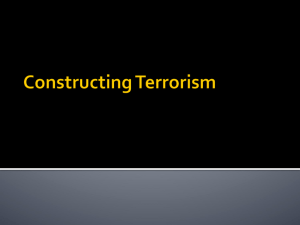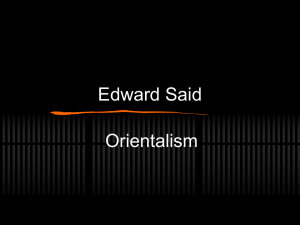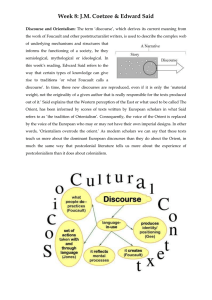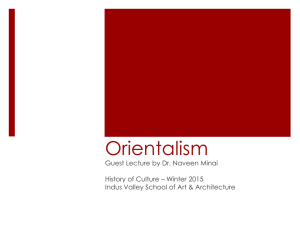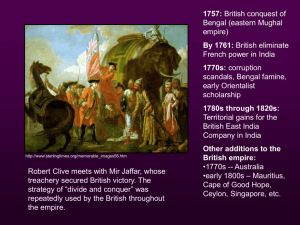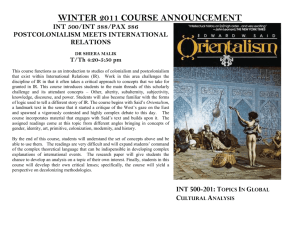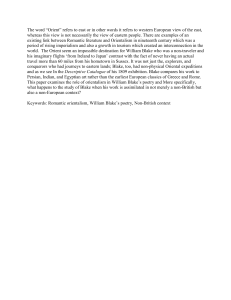Orientalism PPT
advertisement
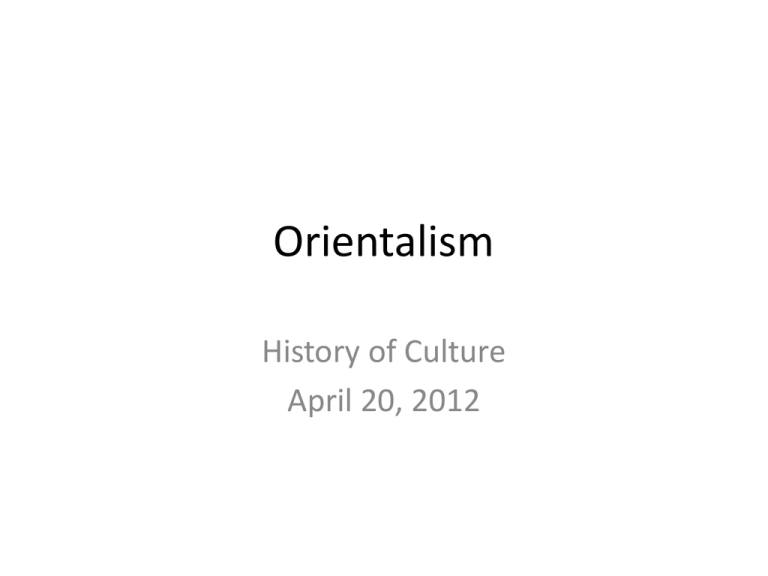
Orientalism History of Culture April 20, 2012 Back to Basics Culture Context Positionality Ethnocentricity “Unbiased”, “apolitical”, “objective” academics and scientists in the Colonial context: study ‘the native’ Ethnic superiority as scientific fact Handmaidens of colonialism Walt Disney’s Lady and the Tramp 1955 “Siamese Cat Song” Edward Said, 1935-2003 Published 1978 To consider while watching the video: While the focus is largely on Arabs, think about how the content of the video can be translated to Pakistanis as well To what degree have you, as people of the Orient, adopted these views yourself? Debrief Do you agree that a concept like Orientalism exists? Does it apply to society nowadays? How? Is it constrained to pop culture/entertainment or does it influence political, social, and economic decisions as well? Is prejudice unavoidable when discussing the “Other”? “How does one represent other cultures? What is another culture? Is the notion of a distinct culture (or race, or religion, or civilization) a useful one, or does it always get involved either in self-congratulation (when one discusses one's own) or hostility and aggression (when one discusses the 'other')?” (Said, 325) Final thoughts Are we guilty of an “Occidentalism” – a certain way in which we view the “West”? Is our perception positive or negative? How do you, as people of the Orient, want to be represented?
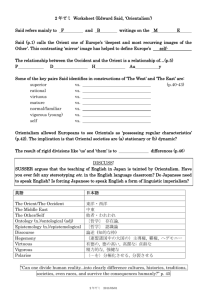
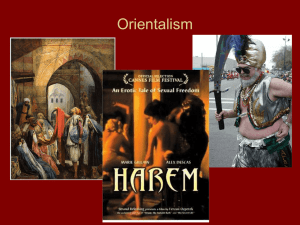
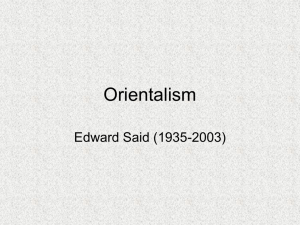
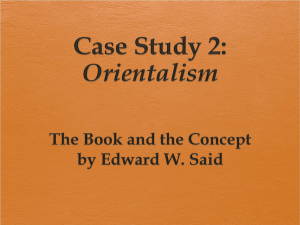
![Orientalism PPT[1].](http://s3.studylib.net/store/data/009508903_1-bf40dd03912d19b9c9baea1f12c90f25-300x300.png)
